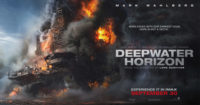On April 20, 2010, a methane gas build-up ignited and exploded, completely covering the Deepwater Horizon drilling rig in the Gulf of Mexico and leading to the death of 11 workers. For three months after the explosion, 210 million gallons of oil poured into the Gulf, affecting about 68,000 square miles of ocean. BP owned the well, but the drilling operation was run by Transocean. Hollywood’s recent dramatization of those events focused on the heroism of individual wokers.
Jared Smith has worked with contractor vetting for decades through Avetta, the supply chain management company he co-founded. He spoke with ISHN after he had watched the film Deepwater Horizon and discussed his thoughts on the movie.
“This will help all of us in the general population be more aware of what folks are doing in this space,” he said.
Reality vs. Hollywood
BP Senior Vice President of U.S. Communications Geoff Morrell told the Wall Street Journal: “Deepwater Horizon is not an accurate portrayal of the events that led to the accident, our people, or the character of our company. In fact, it ignores the conclusions reached by every official investigation: that the accident was the result of multiple errors made by a number of companies.”
Justin Worland of Time said: “The stories of heroism aboard the Deepwater Horizon by Transocean are remarkable and worthy of praise. But the film also shows the employees taking quick heroic action when in reality many were unprepared and overwhelmed by the incident.”
Worland said the movie depicts Transocean much more favorably than BP.
On oilpro.com, Rohan Irvin said the movie’s inaccuracies are insignificant because the real story was that “the culture and behaviors depicted in the film can lead to unimaginable pain and suffering… I've been in the industry long enough to know that when corners are cut to save costs and safety is ignored, bad things happen.
“If you work in the industry, you should watch this movie,” Irvin said. “But most of all, if you have any decision-making authority in any industry that puts people in situations that could be harmful, you need to watch this movie. Then you need to ask yourself: what can I do to make sure this never happens again.”1
Risky business
Smith said the movie highlights a growing risk in the world: contractor management. “Deepwater Horizon was a rig run by a contractor and BP hired that contractor to drill,” he said. “Thousands of companies use contractors for this type of work. More than 90 percent of workers in the field are contractors of some sort. That introduces a lot of risk. What are ways to combat this risk?”
“One thing I like is that the movie demystifies what these people are doing every day,” Smith said. “When people swipe their credit cards at the gas pump, they don’t think of what happens to put oil in their cars. I really appreciated that the movie talked a little bit about the science of it all by putting it into layman’s terms.”
References
1. http://oilpro.com/post/27639/deepwater-horizon-movie-raw-real-and-painful
2. http://time.com/4514546/deepwater-horizon-movie-true-story/







